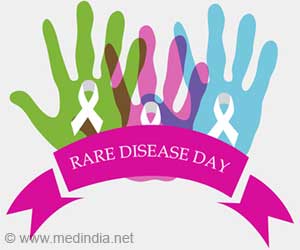Can preeclampsia affect the brain? Yes, preeclampsia (a serious complication of pregnancy) can increase the risk of brain cell damage and inflammation.
- Preeclampsia may increase the risk of brain cell damage and inflammation
- Expecting mothers with a history of severe preeclampsia have more markers associated with brain cell damage and inflammation
- The presence of amyloid (toxic brain protein) indicates brain cell damage and inflammation
- Timely diagnosis and treatment can save lives of mom and the unborn child
Read More..
Is Preeclampsia Dangerous?
Preeclampsia affects up to 15% of women. Left untreated, preeclampsia can lead to serious, even fatal, complications for mother and baby. Even after pregnancy, preeclampsia can cause long-term damage to a woman’s kidneys, heart and brain.Preeclampsia also has been associated with elevated risks of heart disease, stroke and cognitive decline, as well as smaller brain volumes, later in life. However, no reliable early markers are available to determine which women are at risk.
In this study, researchers explored whether extracellular vesicles — small fluid-filled particles — of brain cell membranes circulating in the blood could be found in women years after their affected pregnancies.
Using health record data from the Rochester Epidemiology Project, a cohort of 40 women — 33 with a history of mild preeclampsia and seven with severe preeclampsia — were matched to 40 women who had uncomplicated pregnancies. Compared to the control group, women with a history of severe preeclampsia had a significantly higher concentration of extracellular vesicles that were positive for amyloid beta, which is a toxic brain protein believed to be an essential component of Alzheimer’s disease.
The presence of amyloid indicates brain cell damage and inflammation. The researchers found that levels of amyloid circulating in the blood also were increased.
The researchers also observed that higher levels of these markers were associated with lower volumes of total gray matter of the brain, which is important for cognitive and intellectual functions.
“These vesicles facilitate intercellular transport and communication. In some diseases, production of extracellular vesicles increases, along with a change of their content, which is why they are frequently viewed as markers of cell damage. Future research is needed to determine their importance in the context of cognitive decline associated with a history of preeclampsia throughout a woman's life.”
How to Manage Preeclampsia Early?
For women who are pregnant, Dr. Garovic advises being aware of preeclampsia signs and symptoms:- Attend prenatal visits so your health care professional can monitor your blood pressure.
- Watch for sudden weight gain and swelling. While both are typical during healthy pregnancies, sudden weight gain or swelling, particularly in the face and hands, may be a sign of preeclampsia.
- Contact your health care professional immediately or go to an emergency department if you have severe headaches, visual disturbances, severe belly pain or severe shortness of breath. Because some aches and pains are common pregnancy complaints, it may be difficult to recognize a serious problem. If you're concerned about your symptoms, contact your health care professional.
“The understanding of women's future health risks related to their reproductive history is constantly advancing.”
Source-Eurekalert
















